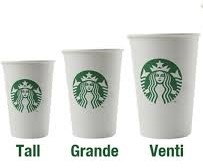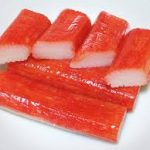Misnomers
1. Daylight Savings Time
In the late 1950s I was eight years old, a time when my mother routinely told us to clean our dinner plates because “children were starving in Armenia.” I did not grasp this logic but her stern voice convinced me it was my patriotic duty to eat all that dreadful liver and squash. So when I heard the call for “daylight savings time” I wanted to step up and do my part. I went outside with a mason jar, let some daylight in, tightly sealed it and then proudly saved it in my closet.
2. PATRIOT Act
Congressional bills are required to have both a number and a name. Bill sponsors have seized this opportunity to create market-friendly acronyms. The 2001 PATRIOT act is actually an acronym for “Uniting and Strengthening America by Providing Appropriate Tools Required to Intercept and Obstruct Terrorism Act of 2001.” Hastily passed after 9/11, the act expanded the government’s ability to monitor its citizens, including a search of telephone and financial records without judicial review. An important check and balance was thus eliminated. The sponsors of the PATRIOT Act knew that their clever title would successfully demonize those who objected to the bill’s incursion into our civil rights, particularly the 4th Amendment’s prohibition of unlawful search and seizure. Imagine the reception the bill would receive if it was given the equally apt acronym POLICE STATE:
P rotecting
O ur
L iberties
I nvolves
C onstitutional
E rosion.
S acrificing
T ime-Honored
A mednments (to)
T hreatened
E xtremism
Don’t get me started on the misnomer that is the “Affordable Care Act.” In fact, this is such a travesty of a name that few dare to say it out loud, instead referring to it merely as the “ACA.”
3. Starbuck’s Tall drinks
By age five, children probably have a firm grasp on size based on the standard trio of small, medium and large orders of McDonald’s French fries. Starbucks is an outlier. They refuse to use the word small. Their sizes ae classified as tall, grande and venti.
Okay, I’ll agree that grande and venti give Starbucks the international flair it seeks, but Tall standing in for small? Maybe Starbucks is playing a psychological game with us, divorcing the link between size and price. I might not be willing to fork over $4.00 for a “small” frapuccino, but the price seems more justified for a “tall” drink.
Another possibility is that Starbucks is sensitive to men’s general discomfort when the word “small” is bandied about. This is a lesson well-learned by condom makers, whose sizes include “regular,” “large” and “extra-large.” Men can live with regular but not small. But if this is Starbuck’s strategy they are ignoring women’s embrace of the concept of small. Aside from breast size, small is an aspirational goal, with women squeezing into single digit sizes. Women are all about self-control, and a tall drink may seem overly indulgent while a small drink is just right.
4. Sit Back, Relax and Enjoy the Flight
From the perspective of my usual seat in the far reaches of economy, the only true word in this familiar phrase is “flight.” The slogan might have been appropriate in the early days of commercial flight when the novelty of flying created some possibility of enjoyment. Those were the days when people dressed up for a flight – my mother wore pearls, my father his coat and tie – and well-coiffed stewardesses served macadamia nuts. Now air travel has all the appeal of an overcrowded city bus. I propose the following slogan revision in the interests of managing expectations.
“Try to get comfortable, calm down and endure. You’ll get there eventually.”
God’s Honest Truth
1. Imitation Crabmeat
I am not a fan of sushi, but have found refuge in “California Rolls,” which ostensibly contain a dab of crabmeat, avocado and maybe a bit of a crunch from a cucumber. Restaurants are not required to list ingredients, so when I bought some California rolls at the grocery store, I took a closer look at the label. And there it was – “imitation crabmeat.” Restaurants have been accused of secretly substituting trash fish for high-priced fish, so this label was a blast of the God’s honest truth, no dissembling, no attempt to hide the fact that I was eating fake stuff.
My initial spasm of joy subsided and I thought, “Hmm, the label has only told me what this wasn’t. If it is not crab, what is it? Is it even fish?”
It turns out that imitation crab is a finely pulverized paste of a variety of fish combined with starch and the ubiquitous “artificial flavors.” The paste is painted red in homage to real crab, and then molded into whatever shape is wanted.
I was severely disappointed, mostly with myself, when I discovered that the labeling was an FDA requirement. How could I have been so naïve to think that a marketer would voluntarily advertise that their product is fake? Sec.540.700 of the FDA Compliance Policy Guide addressing processed fish states:
“For example, a processed and blended seafood product made primarily with fish protein that is a substitute for crabmeat, resembles crab meat, and is nutritionally inferior to crabmeat, must be labeled ‘imitation crabmeat.’”
Perhaps sushi makers were initially aghast at this requirement, but then, taking a page from the clothing designers who proudly sell “fake” or “faux” fur, the industry decided that having the word “crab” in the label, even if it was imitation, was far more appealing than the alternative of “pulverized fish paste.”
Follow Liza Blue on:
Share:


Entertaining.
Interestingly, my mother always told me about the staving people in China when I slackened from eating all my dinner.
A Mason jar caused some confusion until I realised it was a Kilner jar.
But that’s America and Britain for you. Two nations separated by a common language (attributed to George Bernard Shaw).
Are you by chance acquainted with Allan Sherman, a song parodist from the 1960s. He had a very funny song (Hail to Thee Fat Person) about why he became fat – he said that it was because his mother told him to clean his plate because people were starving in Europe (this was during WWII), and that he ate so much as a public service.
Here is the YouTube link: https://www.youtube.com/watch?v=eeoa0-U8-Yw